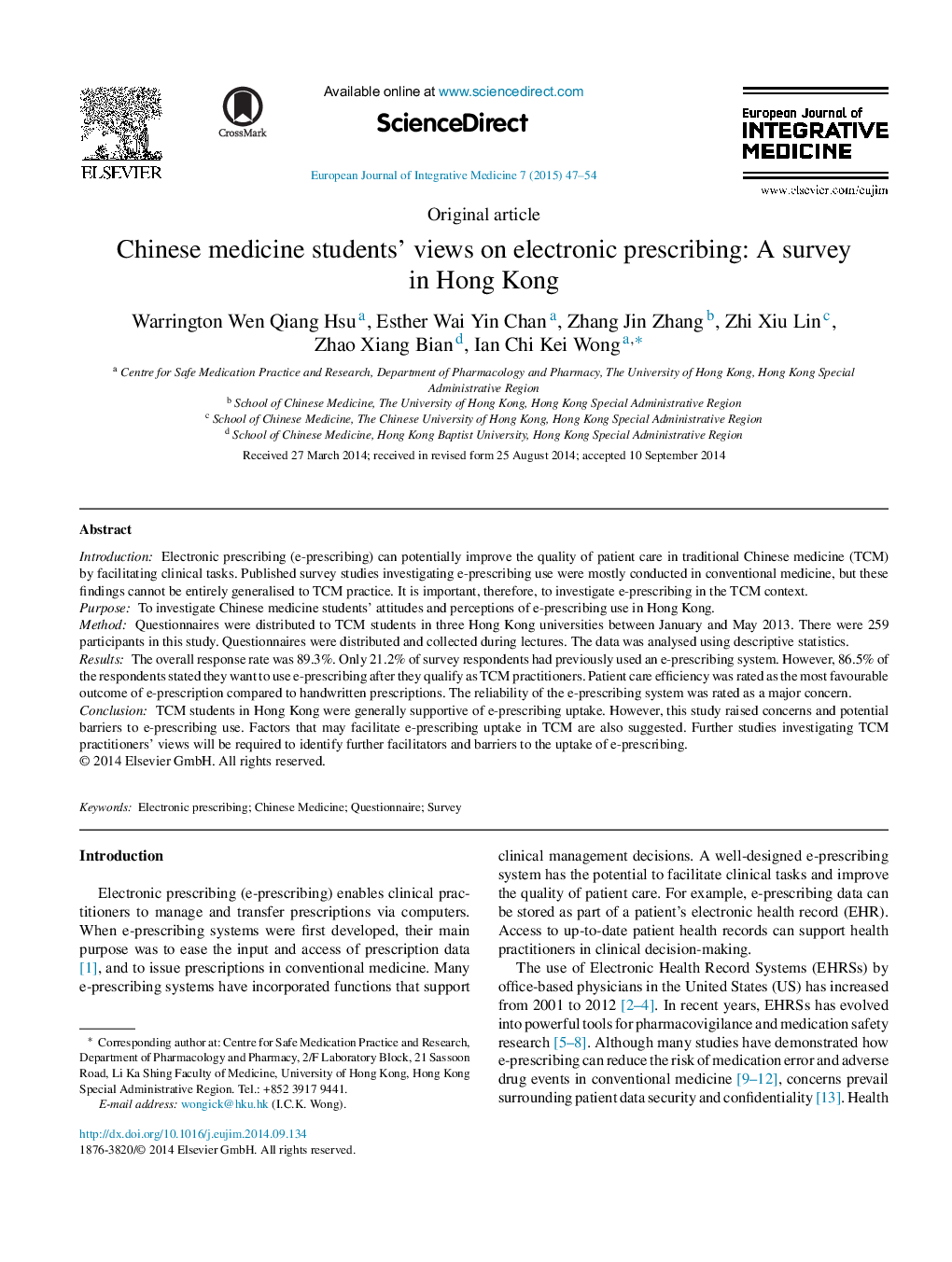| Article ID | Journal | Published Year | Pages | File Type |
|---|---|---|---|---|
| 2479818 | European Journal of Integrative Medicine | 2015 | 8 Pages |
IntroductionElectronic prescribing (e-prescribing) can potentially improve the quality of patient care in traditional Chinese medicine (TCM) by facilitating clinical tasks. Published survey studies investigating e-prescribing use were mostly conducted in conventional medicine, but these findings cannot be entirely generalised to TCM practice. It is important, therefore, to investigate e-prescribing in the TCM context.PurposeTo investigate Chinese medicine students’ attitudes and perceptions of e-prescribing use in Hong Kong.MethodQuestionnaires were distributed to TCM students in three Hong Kong universities between January and May 2013. There were 259 participants in this study. Questionnaires were distributed and collected during lectures. The data was analysed using descriptive statistics.ResultsThe overall response rate was 89.3%. Only 21.2% of survey respondents had previously used an e-prescribing system. However, 86.5% of the respondents stated they want to use e-prescribing after they qualify as TCM practitioners. Patient care efficiency was rated as the most favourable outcome of e-prescription compared to handwritten prescriptions. The reliability of the e-prescribing system was rated as a major concern.ConclusionTCM students in Hong Kong were generally supportive of e-prescribing uptake. However, this study raised concerns and potential barriers to e-prescribing use. Factors that may facilitate e-prescribing uptake in TCM are also suggested. Further studies investigating TCM practitioners’ views will be required to identify further facilitators and barriers to the uptake of e-prescribing.
